
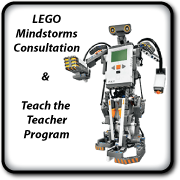
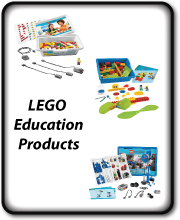
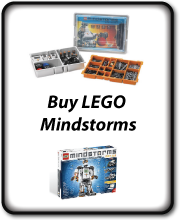
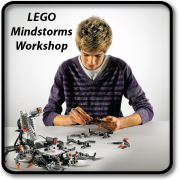
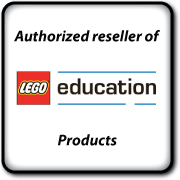


Here at Building Blocks, we teach by utilizing hands-on method where the students themselves learn to be independant, creative and innovative to create their unique robots. What better way to learn, but to have fun while learning.
We have been working very closely with schools to develop classroom material that are used to integrate LEGO Education products into everyday learning.
We at Building Blocks are trying to create a community of NXT Mindstorm users, where all of us could share and have fun. We hope to accumulate enough members to start a NXT League where we all can have our own little fun & games.
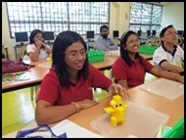
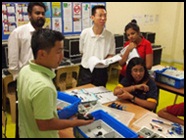
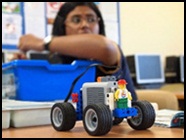

Eric have been tinkering with LEGO since he was a kid. He owned many sets, but was especially fond of the LEGO Space series back in the 1980s. Maybe that was the reason that Eric decided to persue a degree in Engineering and Computer Science. Maybe he wanted to build a space ship to reach for the stars...
About 5 years ago, Eric started again to pursue his obsession with LEGO. But this time, he had purchased the LEGO Mindstorms set. The LEGO Mindstorm was different as it was a robotic set allowing the users opportunity to create robots or vehicles. Not only do you require good LEGO building skills, but one would need to be familiar with programming as well. The LEGO Mindstorm allows the user to design, prototype and create intelligent robots or vehicles.
With Eric's experience with the LEGO Mindstorm series, he has conducted many holiday programs for schools. He has also coached and mentors teams who attends the annual National Robotics Competition(NRC). Most recently, Eric has completed the Teach the Teacher program where he trained teachers with little or no experience with LEGO over a 6 days period into LEGO Educators.
Eric firmly believes that, LEGO is one of the many ways students could express their creativity. LEGO allows the students to create totally different from the next person as no two people is the same, thus no two students would build a vehicle or robot the same way. Similarly when the students program a robot, the robot would also react differently as their program would be different from student to student.
Remember, you are only
"Limited by your Creativity!"
Poh Seng graduated from The University of Melbourne with double degrees in electrical & electronic engineering (first class honours) and computer science. Upon graduation, he has been gaining experience in IT industry. He has previously worked in Howard Florey Insitute, Accenture and Deloitte Consulting. His areas of IT specialization include database administration, web development, programme management office (PMO) and enterprise IT strategy formulation.
LEGO plays a vital role in shaping Poh Seng's early interest in engineering and computer science when he was in primary school. Poh Seng was fascinated with LEGO block building after being given a LEGO set as birthday present by his classmate. Having keen interests in robotic in early age, Poh Seng has been following the development of robotic field and artificial intelligence, especially NASA robotic programme. He was fortunate to have worked in robotic research briefly at Australian National University under Summer Research Scholarship programme. In addition, he was fortunate to have witnessed several key milestones in robotic field such as launch of Mars Rover, Sony Aibo dog robot and of course, LEGO Mindstorm products.
Poh Seng also has passion in teaching and strongly believes LEGO products have great potential in school education. In particular, LEGO Mindstorm is able to encourage creativity of young students and shaping them to be future engineers or scientists. In fact, LEGO products have been successfully incorporated in core school curriculum in several European countries. As such, Poh Seng has been involved in conducting LEGO Mindstorm workshops for young students as well as school teachers who will be teaching robotics in school using LEGO Mindstorm products. He also provides consultation in formulating and implementing robotic science curriculum for schools. He hopes such implementation would help in contributing to the national economy by producing a pool of talents in engineering, science and IT.
